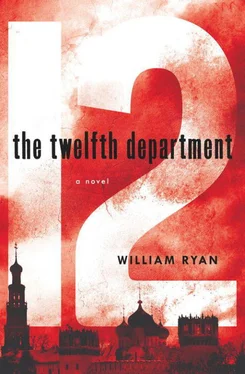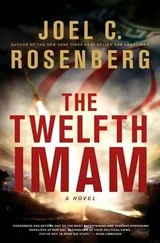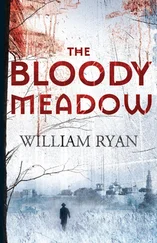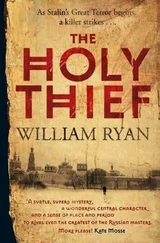“I know what I look like, believe me—I don’t feel much better. So what are you doing here?”
“I was guarding the apartment inside, Comrade Captain, but when they came this morning they told me to wait down here.” He looked up at the apartment building. “I suppose I’m guarding the whole place now.”
“They?”
“You know, Comrade Captain. Them. They were here yesterday as well. And the day before that.”
“I see,” Korolev said. “When did they arrive today?”
Kuznetsky looked at his watch.
“Twenty minutes ago. There are two of our people in there as well. Two forensics men—they came about ten minutes ago—with all their bags and things.”
“What about the body?”
“The doctor took it away the day before yesterday. Not long after it was found.”
“I see,” Korolev said, looking up at the facade once again. “Which doctor would that have been?”
“A lady doctor, Comrade Captain—I didn’t catch her name. She was a well-proportioned lady, not to be disrespectful.”
That would be Chestnova.
“Did you see the body before it was moved?”
“Oh yes, Comrade Captain. I was one of those that found him. His blood went through to the ceiling of the flat below, you see, and they didn’t like the look of the stain it made and called us out.”
“Us?”
“Sergeant Bukov and me. From the station. We broke the door in and there he was—like a pin cushion without the pins. I didn’t know a fellow had that much blood inside him.”
“He was stabbed then?”
“Stabbed? About a hundred times, he was stabbed.”
“So who’s been handling the investigation since?”
Kuznetsky glanced down at his boots, as if they might offer him some assistance in handling a question he clearly didn’t want to answer.
“Them,” he said once again. “Well, only one of them now. It was a different lot before. He’s upstairs. The new one, that is.”
Korolev nodded, guessing that this must be Dubinkin. “I suppose I’d better go and see him then.”
Kuznetsky looked sympathetic.
“He’s up on the second floor—you’ll find it easy enough. I’d best stay here and guard the building.” Then, remembering who he was talking to, he added, “Comrade Captain.”
“Do that, Kuznetsky. But first call Sergeant Bukov and tell him I want to see him. The Militia will be taking a more active role in the investigation from now on—and I’ll need his, and your, assistance.”
Korolev patted the boy on the shoulder as he passed.
He was just about to enter the building when he heard his name being called and turned to find Slivka holding her watch to her ear.
“I’m not late, am I? Damned thing. It’s telling the time all right, just not the right time.”
Her glance took in the state of him and she came to a sudden halt.
“What the hell happened to you, Chief?”
“A misunderstanding—I had some visitors last night. They got the wrong end of the stick.”
“It looks like they beat you with it all the same. Why would someone come to your house in the middle of the night? Were they drunk?”
“No,” Korolev said. “You know the sort of night-time visitor—they come unannounced.”
“Oh. That sort,” Slivka said and ran a hand back through her hair, a gesture that pulled the skin on her forehead tight, but didn’t quite obscure her worried frown. “And you’re here? Not somewhere else? They let you go.”
“They wanted to talk to me about the Azarov case,” Korolev said.
“I’d an idea there might be something more to this.” Slivka looked up at the building and sighed. “The chief just told me to meet you here.”
“When did he call you?”
“About two in the morning. No gentlemen visitors, though.”
“Be thankful—they also managed to frighten Yuri enough that he’s running around the woods somewhere out near Babel’s place. Yasimov’s trying to find him.”
Slivka took this in, shaking her head in disbelief. “He’ll find him though. Yasimov’s like a bloodhound.”
“I hope so. Anyway, here we are—back on the Azarov case.”
Slivka blinked twice then extracted a solitary papirosa from one pocket and a solitary match from the other. She whipped the match down the wall of the building and lit the cigarette.
“The Azarov case,” she said, in a voice that announced to the world that her fate was a dark and gloomy one.
“Another of the professor’s colleagues managed to get himself killed. We’re to handle both investigations—and we’re going to be working directly for State Security.”
“Well,” Slivka said, her mouth trailing smoke, “life isn’t just a walk across a field. And if it is, it should be known that sometimes there’s mud to wade through.”
She nodded, as if that were all that needed to be said. Korolev found a reluctant smile tugging at his mouth as they entered the building. Things couldn’t be that bad if he had Slivka watching his back.
They followed the doorman’s directions up the stairwell and Korolev had the sense that the building was holding its collective breath—terrified by what had happened. Certainly there was no sound except the echo of their footsteps on the stairs.
When they reached the second-floor landing, yellow light spilled out of an open doorway along with the murmur of conversation. In case there was any doubt they were in the right place, someone had helpfully marked out the shape of a body on the carpet just inside the apartment’s hallway. Korolev couldn’t help but notice that the white tape they’d used had been placed directly onto a wide spread of crusted blood. He wasn’t surprised it had gone through to the floor below. There was a lot of it.
“Hello,” Korolev called as he carefully stepped over the outline, looking around as he did so at the splattered walls. To judge from one long arc of blood in particular, it seemed whoever had killed the doctor had managed to sever one of his arteries.
“Come in,” called a voice Korolev didn’t recognize, and he followed it to its source—a large sitting room painted wheat-field yellow. Most of one wall was taken up by a fitted sideboard with shelves that climbed to the ceiling—shelves that were empty except for a solitary vase of wilting flowers. There was a large circular table with four wooden chairs around it, a daybed upholstered in deep-red velvet and scattered with silk cushions of various sizes and colors, and a pair of leather armchairs that had seen better days—none of them recent. But despite the furniture the place felt empty. Hollow, even. As if no one lived here. Which, he supposed, was now the case.
The two forensics men, Levschinsky and Ushakov, were standing in the center of the room with their arms folded, bags and equipment at their feet, looking gray against the bright walls. Around them the carpet was marked with brown streaks and what looked like footprints—blood brought into the apartment by the killer? Or by Militiamen and Chekists who hadn’t been conscious of the need to protect a crime scene? Korolev nodded to his two colleagues and turned his attention to the man in the NKVD uniform standing beside the window. Dubinkin, he presumed.
“It’s Korolev, isn’t it?” The Chekist broke the paper tube off a papirosa and put the short tobacco-filled end into a silver holder. “And this must be Sergeant Slivka. You’ll both know these comrades, I presume.”
He waved a hand in the direction of the others and Korolev nodded. A good-looking fellow, he supposed—a narrow face, despite the extra weight he was carrying around his midriff, and clean-shaven, with smoothed-back dark-brown hair that made him look like some jazz musician from the Empire Restaurant. Dubinkin beckoned him toward the window and gestured down at the bustling traffic of a busy Moscow morning.
Читать дальше












